Letby barrister to hand over 'fresh evidence'
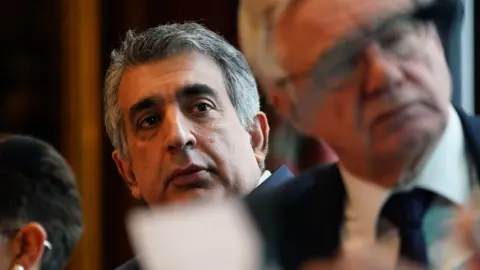 PA Media
PA MediaThe barrister representing convicted child serial killer Lucy Letby has said he will hand over "fresh" medical evidence to the body responsible for investigating alleged miscarriages of justice.
The Criminal Cases Review Commission (CCRC) is reviewing an application by Letby's legal team.
Mark McDonald said he would travel to the CCRC's offices to hand over the full findings of a panel of neonatologists and paediatric specialists who said their analysis found no evidence that Letby harmed any babies.
Mr McDonald will also deliver a separate report from seven medical experts claiming the results of insulin tests on Baby F and Baby L, who a jury concluded Letby had poisoned, were unreliable.
The former nurse's legal team are asking for her case to be referred to the Court of Appeal for a full hearing.
Letby, 35, from Hereford, is serving 15 whole-life orders after she was convicted of murdering seven babies and attempting to murder seven others, with two attempts on one of her victims, between June 2015 and June 2016 at the Countess of Chester Hospital.
At a press conference earlier this year, Dr Shoo Lee, a Canadian neonatal care expert, said there were alternative explanations for each of Letby's convictions for murder or attempted murder.
He said at the time: "In all cases death or injury were due to natural causes or just bad medical care".
But lawyers for the families of Letby's victims rubbished findings of the 14-strong international panel as "full of analytical holes" and "a rehash" of the defence case heard at trial.
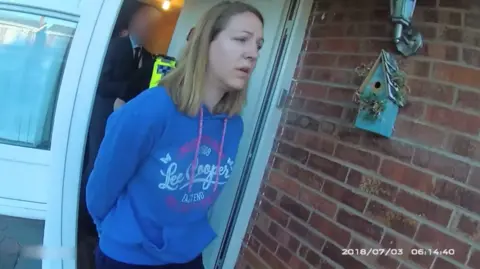 Cheshire Constabulary
Cheshire ConstabularyMr McDonald said a separate insulin report stated the jury in Letby's trial were misled in a number of "important areas" including medical and evidential facts, and that key information on the insulin testing procedure was not submitted.
It added the biomechanical test used in both cases "can give rise to falsely high insulin results" due to the presence of antibodies which can interfere with the outcome.
The report's authors, made up of seven experts including two consultant neonatalogists, a retired professor in forensic toxicology and a paediatric endocrinologist, said: "Our inescapable conclusion is that this evidence significantly undermines the validity of the assertions made about the insulin and C-peptide testing presented in court."
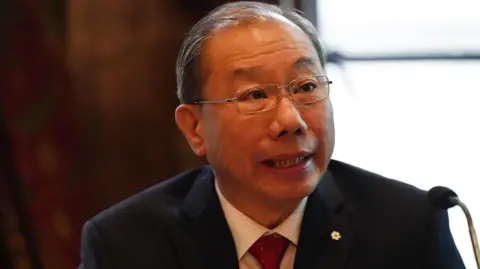 PA Media
PA MediaSpeaking of both reports, Mr McDonald claimed they represented "fresh evidence" that "totally undermined" the prosecution case.
"This is the largest international review of neonatal medicine ever undertaken, the results of which show Lucy Letby's convictions are no longer safe," he said.
"The conclusions of the report on Babies F and L clearly demonstrate that the case must go back to the Court of Appeal as a matter of urgency.
"I hope the CCRC will realise this and refer the case without undue delay."
Letby lost two bids last year to challenge her convictions at the Court of Appeal, in May for seven murders and seven attempted murders, and in October for the attempted murder of a baby girl which she was convicted of by a different jury at a retrial.
Lady Justice Thirlwall is due to publish in November the findings from the public inquiry into how the former nurse was able to commit her crimes.
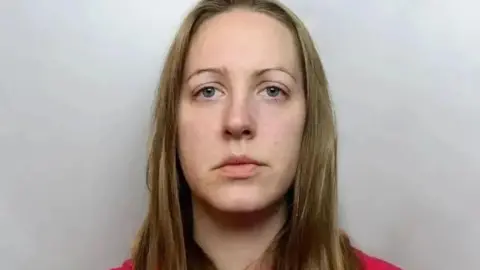
In written submissions to the inquiry, Richard Baker KC, said families of Letby's victims were concerned that Letby's legal team was trying to "generate maximum publicity".
The mother of one of Letby's victims, Child C, told the inquiry the "media circus" around the case was causing their families "distress".
Cheshire Constabulary is continuing a review of deaths and non-fatal collapses of babies at the neonatal units of the Countess of Chester Hospital and the Liverpool Women's Hospital during Letby's time as a nurse from 2012 to 2016.
Senior investigating officer Det Supt Paul Hughes said much criticism of Letby's convictions was "ill-informed" and based on a "very partial knowledge of the facts".
"Lucy Letby's trial was one of the longest running murder trials in British criminal history with the jury diligently carrying out their deliberations for more than 100 hours," he said.
Det Supt Hughes said the trial followed "a detailed and painstaking" six-year investigation involving a team of almost 70 police officers and "no stone was left unturned".
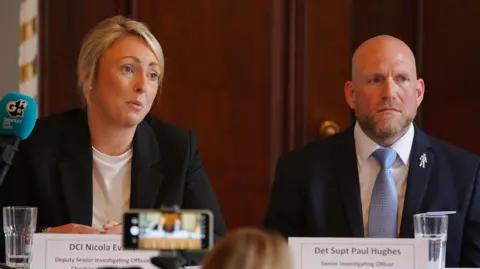 PA Media
PA MediaHe said: "Preparing for the trial was a mammoth task with 32,000 pages of evidence being gathered and medical records running into thousands of pages being sifted through.
"Around 2,000 people were spoken to and almost 250 were identified as potential witnesses at trial.
"As the case unfolded, multiple medical experts – specialising in areas of paediatric radiology, paediatric pathology, haematology, paediatric neurology and paediatric endocrinology and two main medical experts, consultant paediatricians – were enlisted to ensure that we carried out as thorough an investigation as possible.
"All are highly regarded in their area of expertise and were cross examined whilst giving their evidence in court."
Det Sup Hughes said the families of the babies had displayed remarkable "dignity and composure in the face of intense public discussions with little sensitivity or humanity".
He said their words at the closing of the Thirlwall Inquiry were "incredibly honest and powerful and must not be lost in a sea of noise".
He went on: "It is out of a deep sense of respect for the parents of the babies that we have not and will not get drawn into the widespread commentary and speculation online and in the media.
"They have suffered greatly and continue to do so as this case plays out in a very public forum."
He said the force would assist the CCRC if needed.
Additional reporting by PA Media.
Listen to the best of BBC Radio Merseyside on BBC Sounds and follow BBC Merseyside on Facebook, X, and Instagram, and watch BBC North West Tonight on BBC iPlayer.
